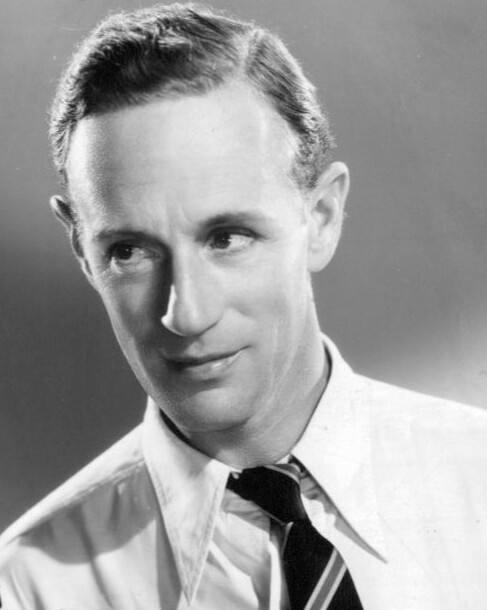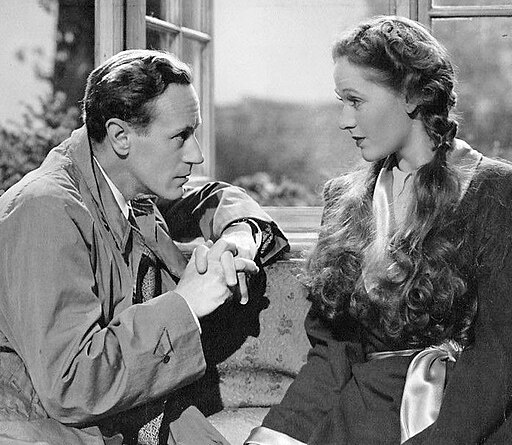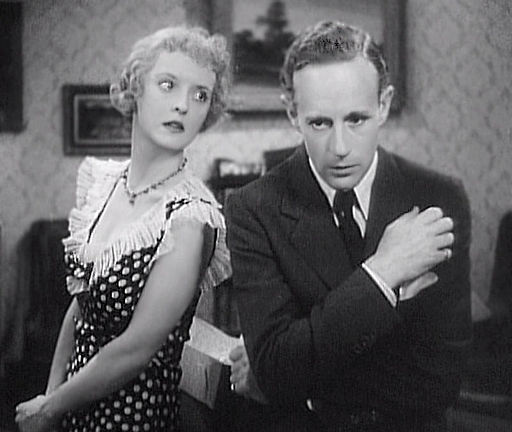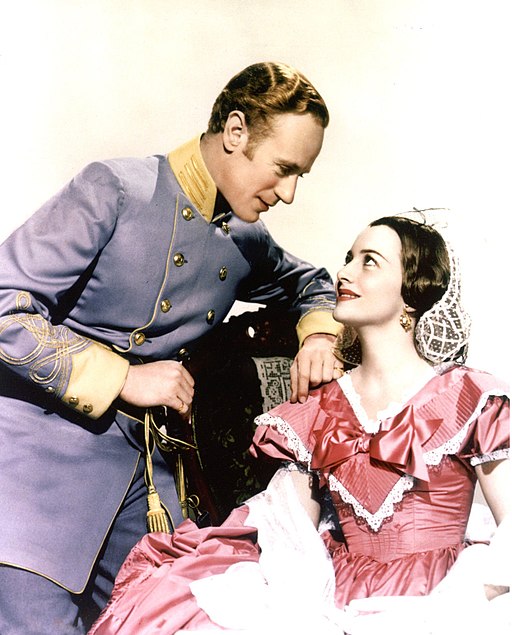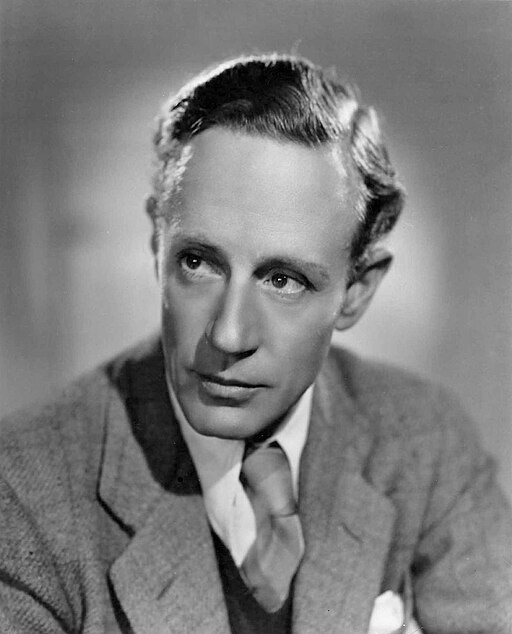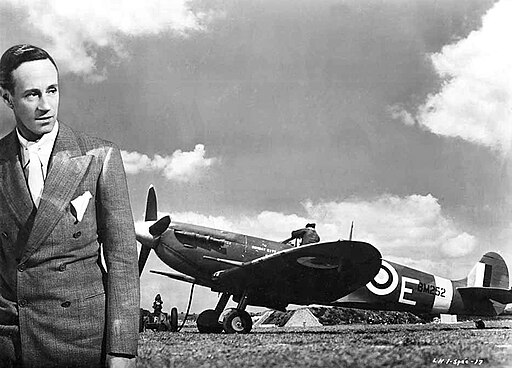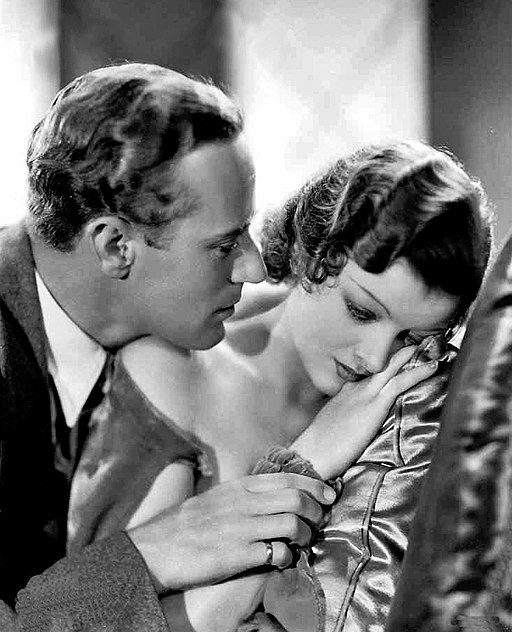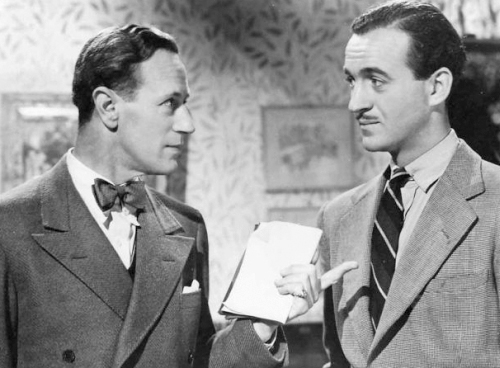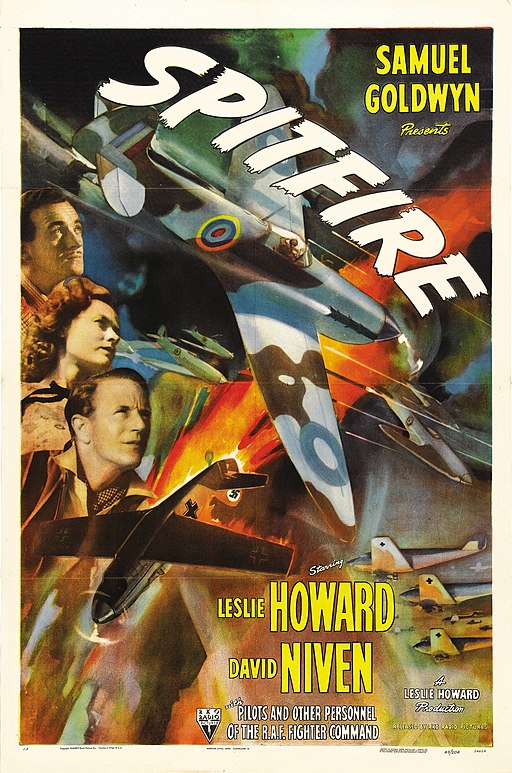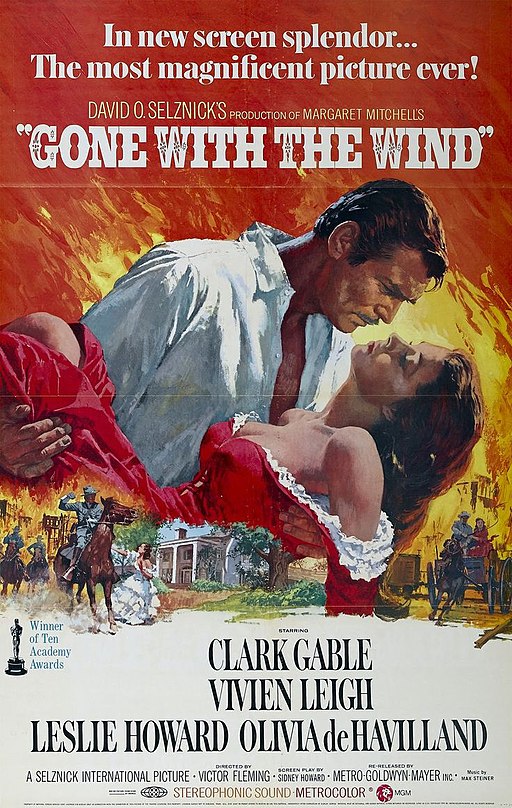Leslie Howard
back| Full Name | Leslie Howard Steiner |
| Stage Name | Leslie Howard |
| Born | April 3, 1893 |
| Birthplace | Forest Hill, London, England |
| Died | June 1, 1943 |
| Buried | No burial site as the plane he was on was shot down by German aircraft during World War II |
| Married to | Ruth Evelyn Martin (m. 1916) |
| Children | Ronald Howard (1918–1996), an actor, best known for his portrayal of Sherlock Holmes in a television series - Leslie Ruth Howard (1924–2013) - who became known as Doodie |
| Notable films | The Scarlet Pimpernel (1934) - Of Human Bondage (1934) - Romeo and Juliet (1936) - Pygmalion (1938) - Gone with the Wind (1939) |
Leslie Howard
The Quintessential English Gentleman
Leslie Howard's career was marked by his elegant, intellectual screen presence and his versatility in both romantic and dramatic roles.
His untimely death during World War II cut short a distinguished career. Howard was also notable for his contributions to the war effort, including using his star status for propaganda purposes against the Nazis.
Related
Leslie Howard (1893 – 1943)
Detailed Biography
Leslie Howard Steiner was born on April 3, 1893, in Forest Hill, London, England, to a British mother, Lilian (née Blumberg), and a Hungarian-Jewish father, Ferdinand "Frank" Steiner. His upbringing in a middle-class family was comfortable and culturally rich, fostering an early interest in the arts.
Despite his later fame, Leslie's initial career path was not in acting. After attending Dulwich College, he worked as a bank clerk, a job he found unfulfilling. The outbreak of World War I in 1914 marked a significant turn in his life. Howard served in the British Army but was medically discharged after suffering from shell shock, now known as post-traumatic stress disorder (PTSD).
Path Towards Success
The war significantly impacted Howard, prompting a pivot towards a career in acting. He started his acting career on the stage, adopting the stage name Leslie Howard to mask his partially German heritage during a time of anti-German sentiment in Britain. His early stage performances, marked by his genteel appearance and resonant voice, quickly garnered attention.
Howard's transition to film came in the 1920s, with his first significant movie role in "The Lackey and the Lady" (1921). His career in both British and American cinema flourished throughout the 1920s and 1930s. He was particularly admired for his portrayals of quintessential Englishmen, exhibiting both a romantic appeal and a reflective, often melancholic depth.
Marriage and Family
In 1916, Howard married Ruth Evelyn Martin. The couple had two children: Ronald and Leslie Ruth ("Doodie"). His son Ronald followed in his footsteps, becoming an actor, while Leslie Ruth maintained a more private life.
Passions and Off-Screen Endeavors
Beyond acting, Howard had a passion for literature, especially the works of William Shakespeare. He was also an avid gardener, finding peace and solace in the tranquility of nature. His intelligence and eloquence made him a respected figure not only in acting circles but also in intellectual ones.
During World War II, Howard became actively involved in the British war effort, using his fame and skills to boost morale and engage in cultural propaganda. He directed and starred in films that were subtly anti-Nazi and pro-British, contributing to the Allied cause beyond the screen.
Death and Legacy
Leslie Howard's life came to a tragic end during World War II. On June 1, 1943, he was a passenger on BOAC Flight 777 when it was shot down by German aircraft over the Bay of Biscay. The attack was possibly targeted, as the Nazis might have believed that British Prime Minister Winston Churchill was on board. Howard, along with all other passengers and crew, perished in the incident. His body was never recovered, and thus he has no grave, but his memory is honored in various war memorials.
Howard's death was a significant loss to the arts and his country. He was not just an actor but also a symbol of British resilience and resistance during a dark time in history. His legacy in film, particularly in roles like Ashley Wilkes in "Gone with the Wind" and Professor Henry Higgins in "Pygmalion," continues to captivate audiences, preserving his memory as one of the greats of early cinema.
Short BBC Documentary on the Death of Leslie Howard:
The Story behind his Tragic Death:
Leslie Howard's death was both tragic and shrouded in a degree of mystery, primarily because it occurred during the turbulent times of World War II. Here is a detailed account:
Circumstances of Death
- Date and Location: Leslie Howard died on June 1, 1943, when the civilian airliner he was traveling in, BOAC Flight 777, was shot down by the Luftwaffe over the Bay of Biscay.
BOAC Flight 777
- Flight Details: The flight was a scheduled British Overseas Airways Corporation civilian airline service from Lisbon, Portugal, to Bristol, England.
- Attack: The aircraft, a Douglas DC-3, was intercepted and attacked by eight German Junkers Ju 88 fighter planes. It was shot down, resulting in the loss of all 17 passengers and crew aboard.
Speculations and Theories
- Targeted Attack: There has been considerable speculation that the aircraft was specifically targeted because Howard was on board. As a prominent British actor and a known anti-Nazi propagandist, it has been suggested that the Germans believed his work was of significant importance to the British war effort. Some theories even suggest that the Nazis might have mistaken him for British Prime Minister Winston Churchill, as the two had a somewhat similar appearance and Churchill was known to travel frequently at that time.
- Espionage Rumors: Another theory suggests that Howard was involved in British espionage, and his acting career was a cover. However, this theory has less evidence and is considered more speculative.
The Acting Style of Leslie Howard:
Leslie Howard's acting style was marked by a distinctive blend of understated elegance, intellectual charm, and emotional depth, making him one of the most memorable actors of his era. Here's a detailed analysis of his style:
Understated Elegance
Howard was known for his genteel, refined presence on screen. He often portrayed characters that were sophisticated and urbane, embodying the archetype of the English gentleman with an effortless grace. This elegance was not just in his physical appearance but also in his mannerisms and speech. His performances were marked by a certain poise and composure that added a layer of aristocratic charm to his characters.
Intellectual Charm
Howard's characters often had an intellectual or artistic bent, whether he was playing a playwright in "The Petrified Forest" or a professor in "Pygmalion." He had a way of delivering lines that made his characters seem both thoughtful and introspective. This intellectual aspect of his acting was further enhanced by his crisp, clear enunciation and his ability to convey complex emotions through subtle facial expressions and gestures.
Emotional Depth and Vulnerability
Despite his often reserved exterior, Howard was capable of conveying a deep well of emotion. This was particularly evident in roles where his characters faced moral dilemmas or emotional turmoil. In "Of Human Bondage," for instance, his portrayal of a club-footed medical student obsessed with a waitress showed a man torn by desire, jealousy, and self-loathing. Howard had the ability to reveal the vulnerability of his characters, often masked beneath a polished surface.
Romantic and Melancholic Undertones
Howard excelled in romantic roles, often bringing a sense of melancholy or unrequited love to his characters. His Ashley Wilkes in "Gone with the Wind" is a prime example, where he portrayed a man caught between duty and desire. His performances often had a poignant, bittersweet quality, making his characters more relatable and human.
Versatility
While Howard is best known for his portrayals of quintessential Englishmen, he was a versatile actor capable of playing a wide range of characters. From the swashbuckling hero in "The Scarlet Pimpernel" to the modern-day adventurer in "Pimpernel Smith," Howard showed a remarkable ability to adapt to different genres and settings.
Legacy
Leslie Howard's acting style was a product of both his theatrical background and the era in which he worked. He brought the precision and clarity of stage acting to the screen, along with a naturalistic approach that was ahead of his time. His performances have a timeless quality, and he remains a symbol of a bygone era of cinema, characterized by refinement and depth. Howard's influence can be seen in the generations of actors who followed, many of whom have cited him as an inspiration in their own work.
Memorable Film Quotes from Leslie Howard:
"The Petrified Forest" (1936)
- As Alan Squier, a disillusioned intellectual, Howard delivered several poignant lines. A notable one is:
"I'm a failed poet. Perhaps that's the best thing for me after all." This line captures the character's reflective and somewhat melancholic nature.
"Pygmalion" (1938)
- Playing Professor Henry Higgins, Howard had several memorable lines, particularly in his exchanges with Eliza Doolittle. One of the most famous is:
"I think you're a genius. I've learned something from your idiotic notions: I confess that humbly and gratefully." This line shows the character's arc from arrogance to a recognition of his own limitations and the value of others.
"Gone with the Wind" (1939)
- In his role as Ashley Wilkes, Howard's character was a source of many thoughtful and reflective lines. One that stands out is:
"I've always loved you. I've never loved anyone else. I just married Melanie to try to - to be like you, to try to corner some of your goodness and unselfishness for myself." This line epitomizes the complex emotional state of his character, torn between duty and personal desire.
"Berkeley Square" (1933)
- As Peter Standish, a man who travels back in time, Howard delivers lines that resonate with wonder and existential curiosity. A notable quote is:
"I am here, living in these days, just as you are. But I belong to the future." This line captures the character's sense of displacement and the marvel of time travel.
"The Scarlet Pimpernel" (1934)
- Howard's portrayal of Sir Percy Blakeney/The Scarlet Pimpernel had him delivering lines with a blend of bravado and wit. A memorable line is:
"They seek him here, they seek him there, those Frenchies seek him everywhere. Is he in heaven or is he in hell? That damned, elusive Pimpernel." This line, recited by Howard's character, reflects the clever and elusive nature of the Scarlet Pimpernel.
Awards and Recognition:
Leslie Howard's acting career, spanning both stage and screen, was marked by critical acclaim and popularity, but it unfolded during a time when many of the major film awards we know today were in their infancy or did not yet exist. Here is an overview of the notable awards and recognitions he received:
Academy Awards (Oscars)
- 1933 Nomination for Best Actor: Leslie Howard was nominated for the Academy Award for Best Actor for his role in "Berkeley Square" (1933). This film featured Howard in a dual role, playing a man who finds himself transported back in time to the 18th century. His performance was praised for its depth and complexity.
Other Honors and Recognitions
- While Howard did not receive a large number of awards during his lifetime, his contributions to film and theater were widely recognized and celebrated in other ways.
- He was immensely popular with audiences and critics alike, particularly for his performances in "The Petrified Forest," "Pygmalion," and "Gone with the Wind."
- Posthumously, Howard's work and legacy have been celebrated in various retrospectives and film festivals. His role in "Gone with the Wind," in particular, has been cited as one of the iconic performances in cinema history.
Movies featuring Leslie Howard:
1920s
- "The Heroine of Mons" (1920): A silent film set during World War I, focusing on the bravery of nurses.
- "Bookworms" (1920): A short silent comedy.
- "Five Pounds Reward" (1920): A silent short film.
- "The Lackey and the Lady" (1921): Howard's first significant film role, a silent film about class and romance.
- "Two Many Crooks" (1922): A silent comedy.
- "The Flight of the Duchess" (1923): A silent film adaptation of a poem by Robert Browning.
1930s
- "Outward Bound" (1930): A fantasy drama where Howard plays a troubled man on a mysterious ocean liner.
- "Never the Twain Shall Meet" (1931): A romantic drama set in the South Seas.
- "Five and Ten" (1931): Howard plays a young architect in this drama about a wealthy family.
- "Devotion" (1931): A romantic drama where Howard portrays a struggling composer.
- "Service for Ladies" (1932, also known as "Reserved for Ladies"): A romantic comedy set in a luxury hotel.
- "Smilin' Through" (1932): A romantic drama featuring a love story across two generations.
- "Berkeley Square" (1933): A fantasy drama with Howard as a young American who travels back in time to the 18th century.
- "Captured!" (1933): A World War I drama about prisoners of war.
- "The Lady Is Willing" (1934): A romantic comedy set in Austria.
- "British Agent" (1934): A spy film set during the Russian Revolution.
- "The Scarlet Pimpernel" (1934): Howard plays the dual role of a foppish aristocrat and a daring rescuer during the French Revolution.
- "Of Human Bondage" (1934): A drama based on W. Somerset Maugham's novel, with Howard as a club-footed medical student.
- "The Petrified Forest" (1936): A drama about a drifter, a waitress, and a gangster, set in an Arizona diner.
- "Romeo and Juliet" (1936): Howard as Romeo in Shakespeare's classic tragedy.
- "Stand-In" (1937): A comedy about Hollywood, with Howard playing a financial analyst.
- "It's Love I'm After" (1937): A romantic comedy co-starring Bette Davis and Olivia de Havilland.
- "Pygmalion" (1938): Howard starred as Professor Henry Higgins in this adaptation of George Bernard Shaw's play.
- "Gone with the Wind" (1939): As Ashley Wilkes, Howard featured in this epic historical romance set during the American Civil War.
1940s
- "Intermezzo: A Love Story" (1939, released in the USA in 1940): A romantic drama about a violinist who falls in love with his daughter's piano teacher.
- "Pimpernel Smith" (1941): A modern take on the Scarlet Pimpernel story, set against the backdrop of World War II.
- "49th Parallel" (1941): A war drama about a group of Nazis stranded in Canada.
- "The First of the Few" (1942, also known as "Spitfire"): A biographical film where Howard plays R.J. Mitchell, designer of the Spitfire fighter plane.
- "The Gentle Sex" (1943, producer and narrator): A film about women's roles in WWII Britain.

